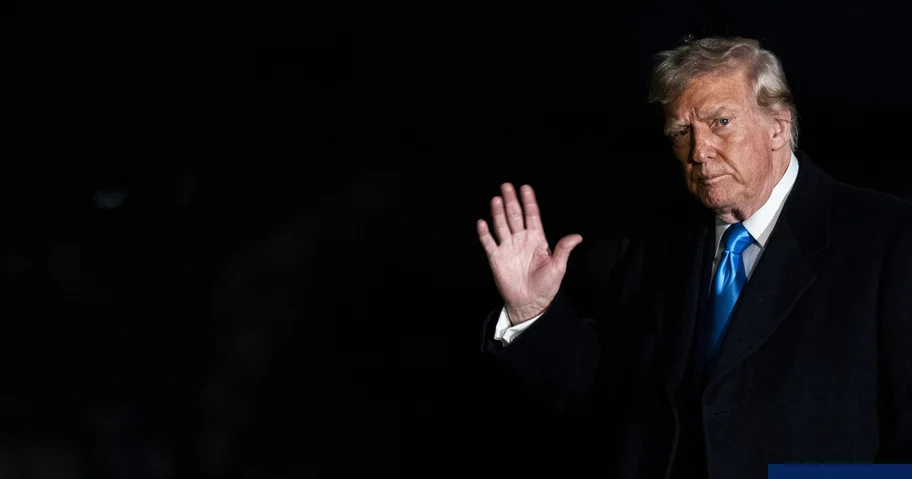Donald Trump has fired the opening salvo of his trade war, imposing tariffs on China on Tuesday that sparked instant retaliation from Beijing, amid fears for the global economic repercussions.
Moments after US tariffs of 10% came into effect, China swiftly announced an anti-trust investigation into Google. China’s finance ministry also announced 15% tariffs on coal and liquefied natural gas, and 10% on crude oil, farm equipment, large-displacement vehicles and pickup trucks from the US.
China’s commerce ministry and its customs administration said on Tuesday that to “safeguard national security interests” the country was imposing export controls on a raft of critical minerals: tungsten, tellurium, ruthenium, molybdenum and ruthenium-related items.
The commerce ministry also said it was adding the US companies PVH Group and Illumina Inc to its unreliable entity list, opening them to restrictions or penalties, without detailing what the companies were accused of. PVH is a clothing company which owns brands including Tommy Hilfiger and Calvin Klein. Illumina is a biotech firm specialising in genomic sequencing which recently partnered with Nvidia on health-related AI tech.
“The unilateral imposition of tariffs by the US seriously violates the rules of the World Trade Organization,” China’s finance ministry said in its statement announcing the retaliatory tariffs. “It is not only unhelpful in solving its own problems, but also damages the normal economic and trade cooperation between China and the US.”
Earlier, the US president pulled back from the brink of an economic conflict with Canada and Mexico, however, delaying threatened duties for another month following 11th-hour talks.
For exports from China, the US has scrapped an exemption through which shipments valued at less than $800 have not faced tariffs. Popular Chinese retailers such as Shein and Temu have relied on the exemption to sell cheap goods in the US.
Following a call with Mexico’s president, Claudia Sheinbaum, on Monday, Trump agreed to postpone tariffs of 25% on Mexico – the latest of several delays – after she offered to send 10,000 of the country’s troops to its border with the US.
Talks with Justin Trudeau, the Canadian prime minister, also prompted Trump to postpone 25% tariffs on the country. Canada is implementing a $1.3bn border plan, Trudeau said, and will appoint a fentanyl czar, list cartels as a terrorists and “ensure 24/7 eyes on the border”.
As the US readied higher tariffs on China on Monday, the White House announced that Trump would speak with China’s president, Xi Jinping, later this week. Beijing earlier pledged to hit back with “countermeasures” and file a legal case against the US at the World Trade Organization.
Economists have warned Trump’s tariff plans risk raising prices for millions of Americans, just weeks after he pledged, upon taking office, to “rapidly” bring them down.
But addressing reporters in the Oval Office on Monday, Trump maintained that tariffs were a “very powerful” means of both strengthening the US economically and “getting everything else you want”.
Every country wants to agree a way to avoid US tariffs, the president claimed. “In all cases, they all wanna make deals.”
Trump had conceded over the weekend that they could cause “a little pain” in the US. “WILL THERE BE SOME PAIN? YES, MAYBE (AND MAYBE NOT!),” he wrote on social media. “BUT WE WILL MAKE AMERICA GREAT AGAIN, AND IT WILL ALL BE WORTH THE PRICE THAT MUST BE PAID.”



